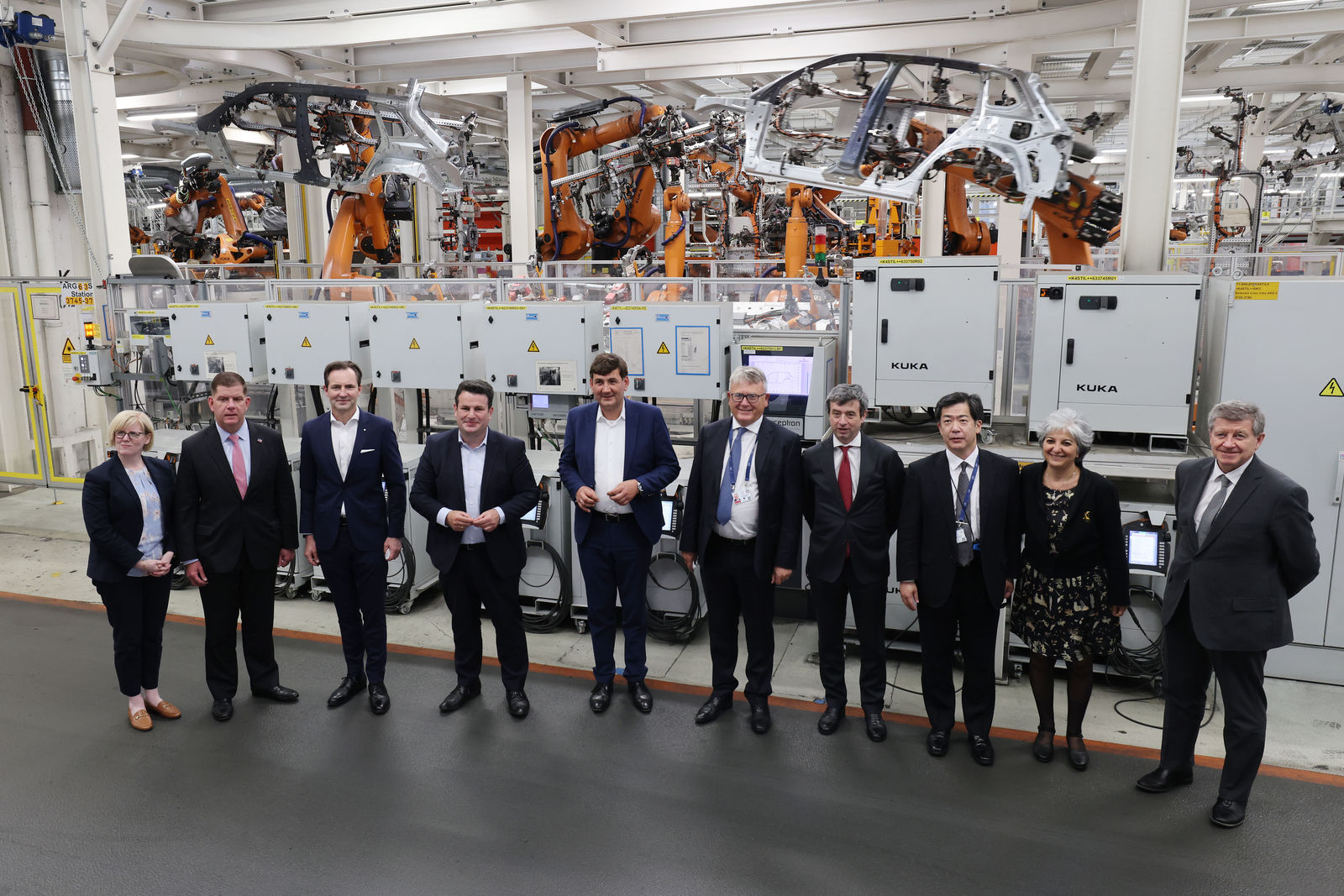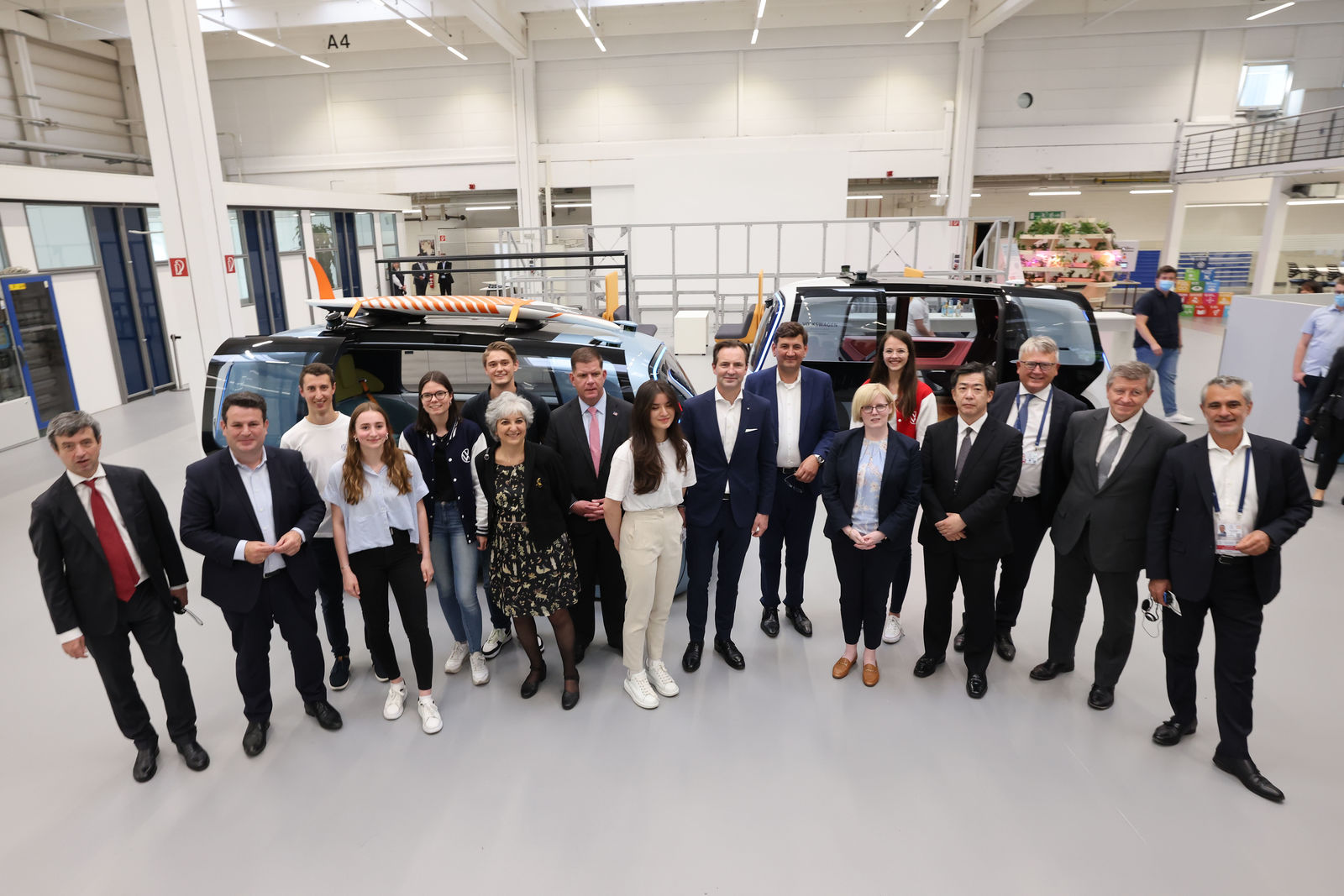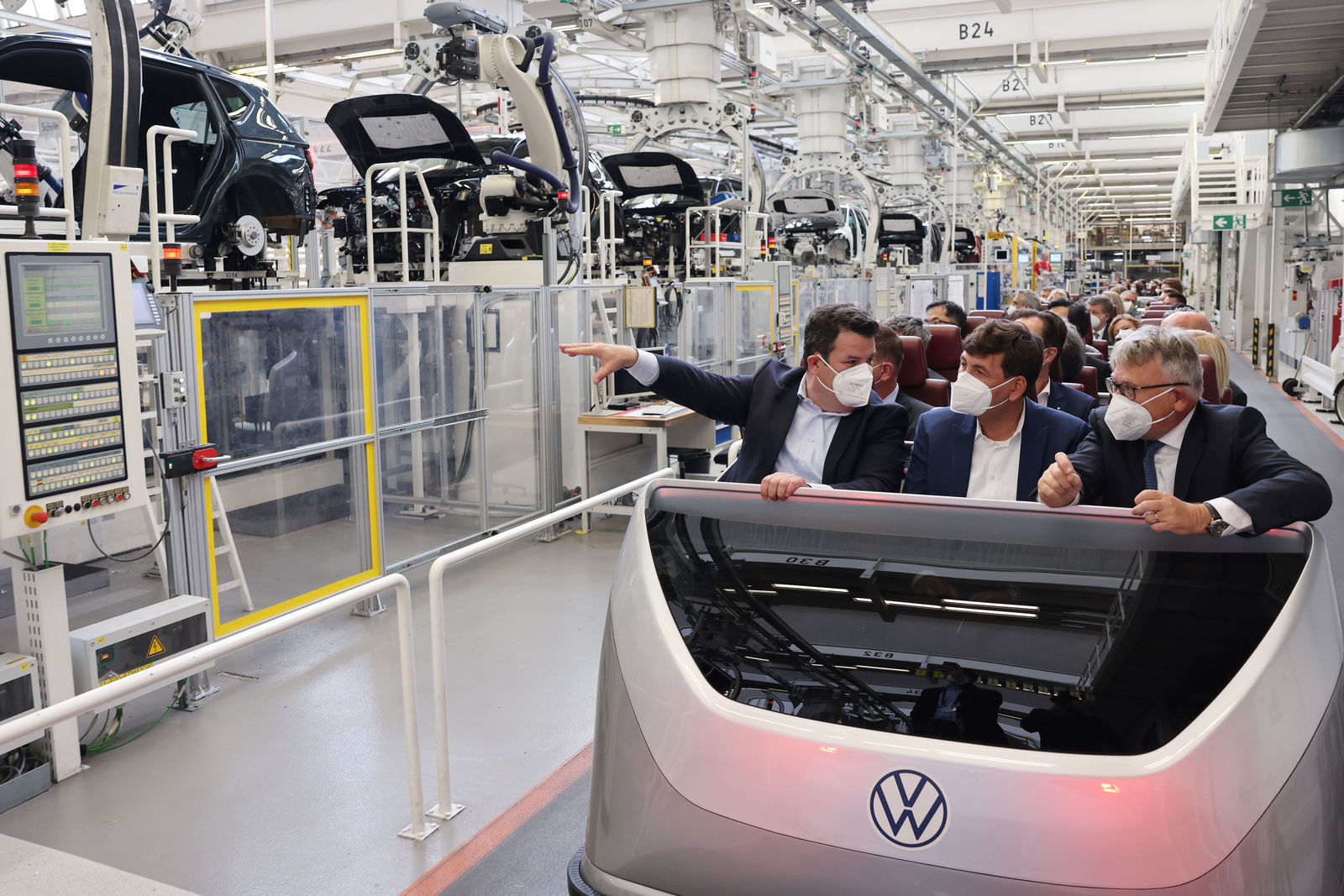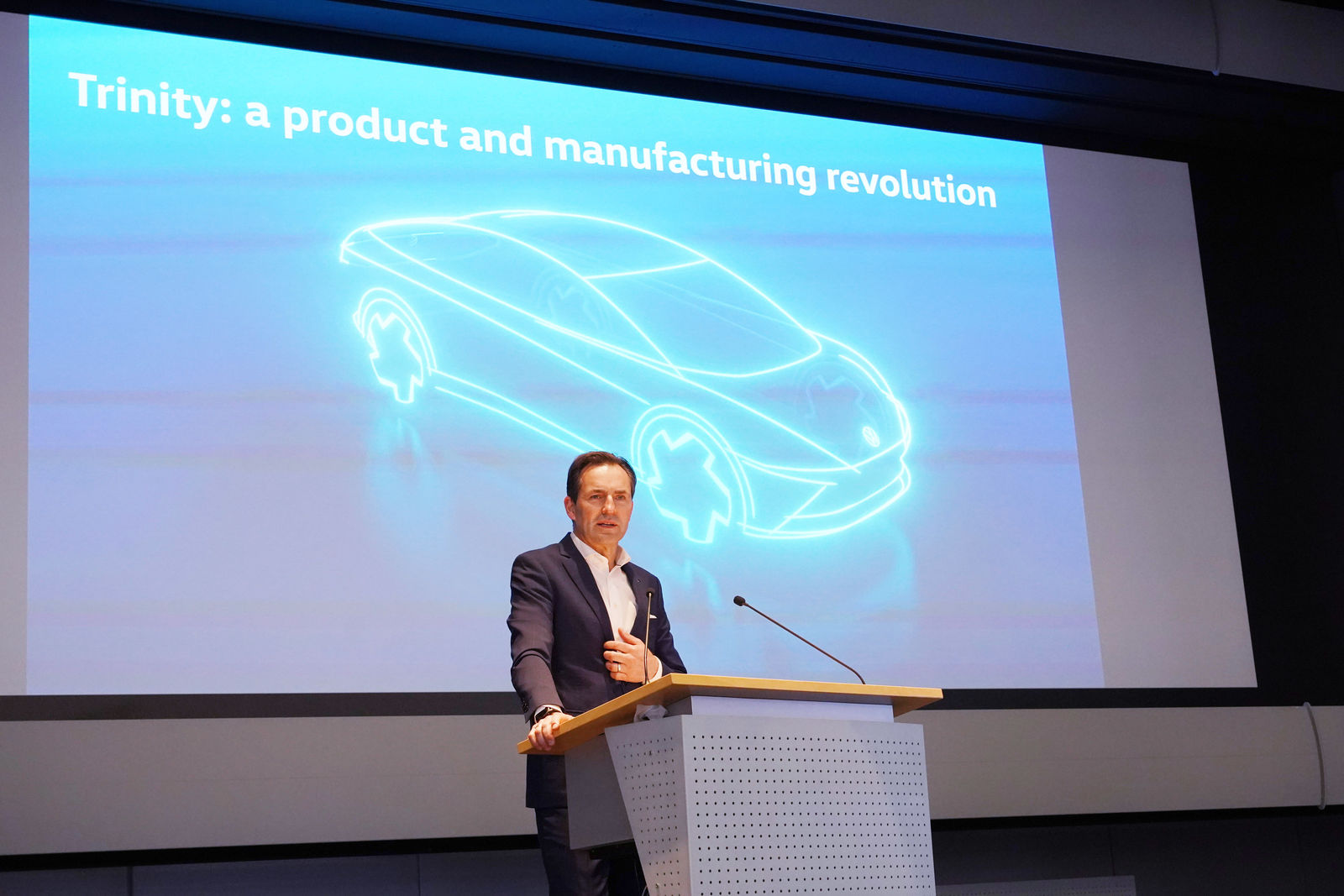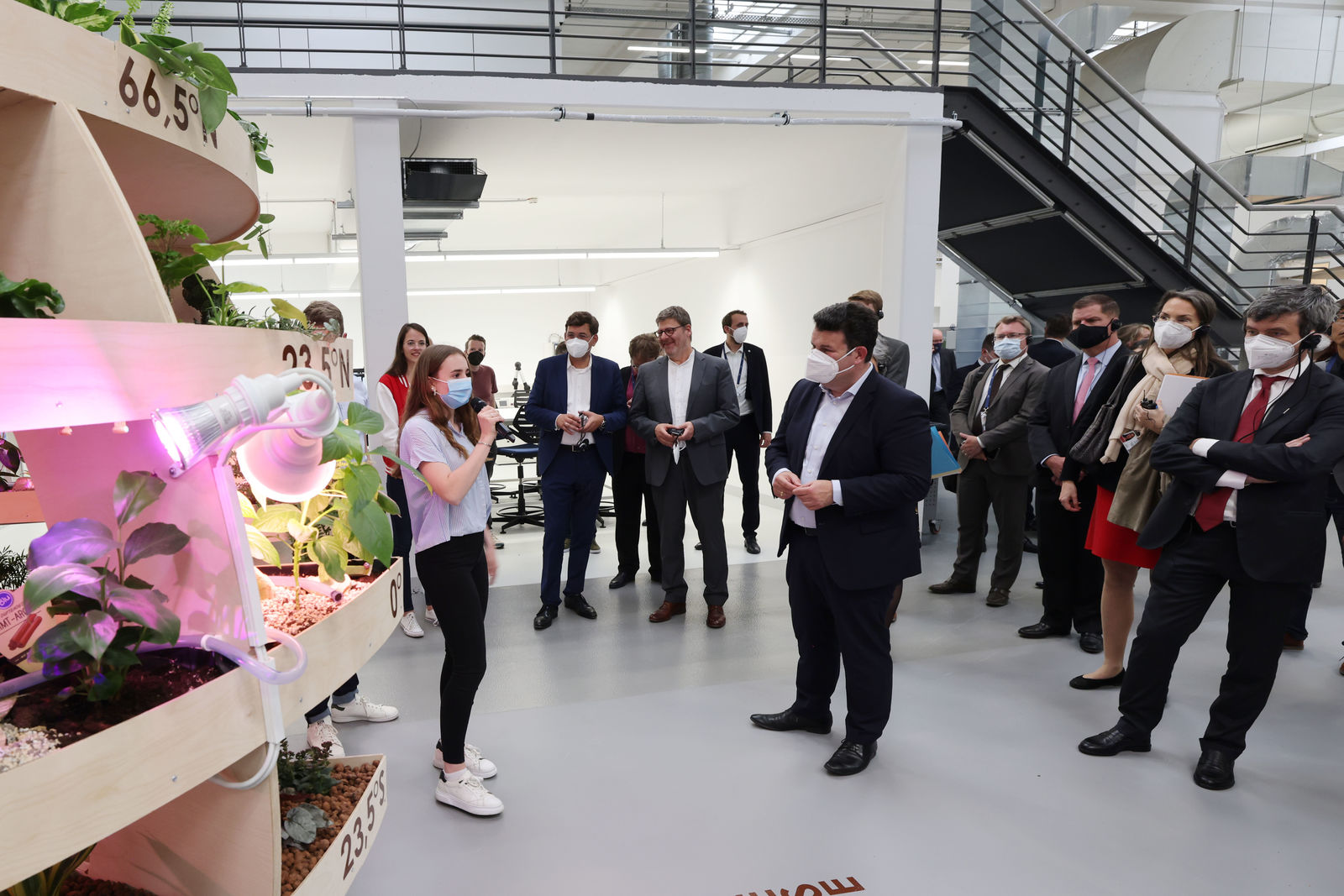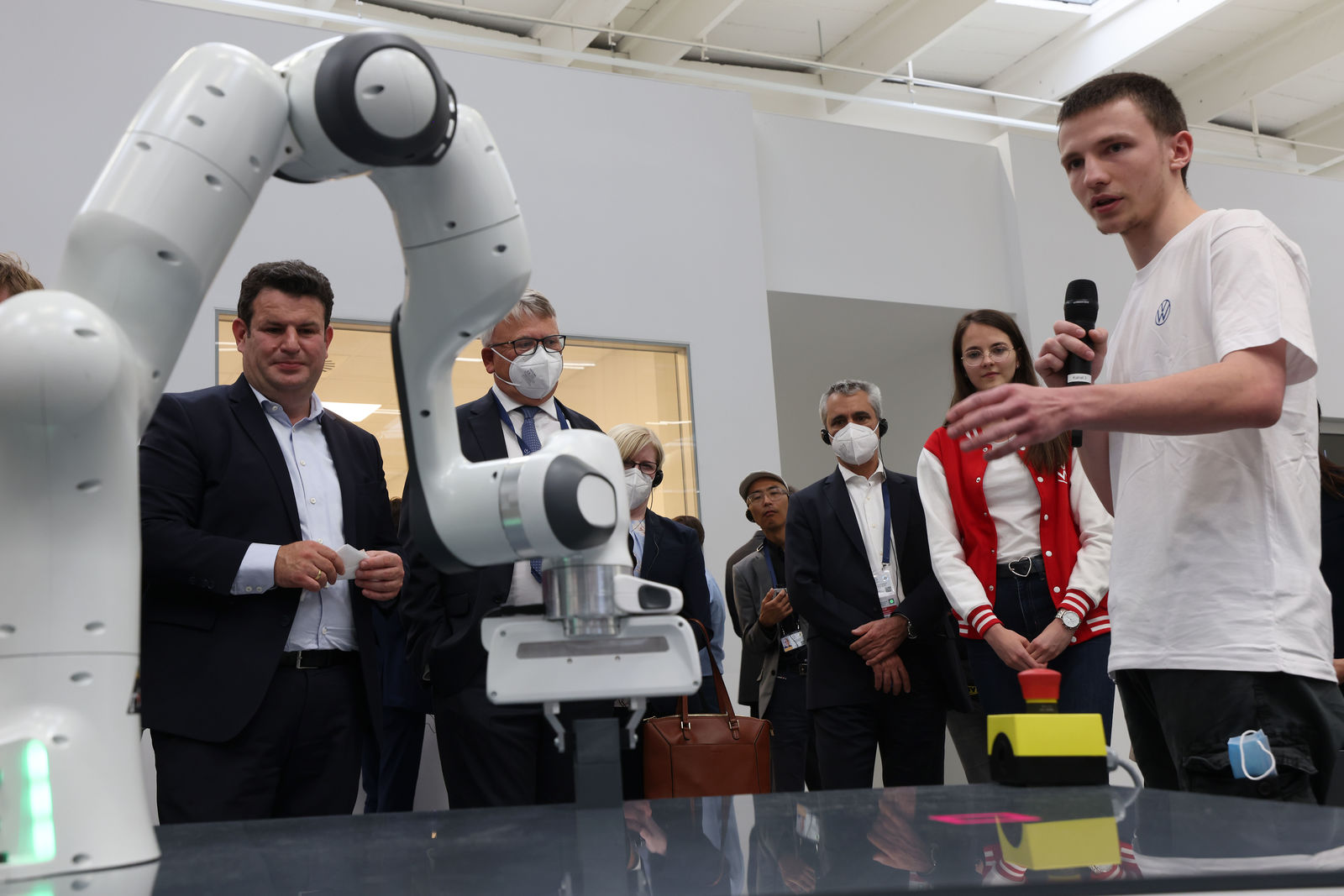Gunnar Kilian, Member of the Board of Management for Human Resources and Truck & Bus at Volkswagen AG: “In our thought processes, we have to unite sustainability, technological advances, economic success and protecting jobs. This is the only way that the necessary structural change can succeed in Germany as an industrial region. In doing so, Volkswagen can serve as the blueprint for the automotive industry as a whole, as well as beyond. As one of the world’s most important employers, we consider it our primary duty to shape our journey into the fully electric age together with our workforce, and we are certain that precisely this will give us the decisive competitive advantage for the future. The main plant in Wolfsburg plays a key role in this journey.”
Thomas Schäfer, COO and, as of July 1, 2022, CEO of the Volkswagen brand: “Volkswagen has proven that we can accomplish transformation! We have a clear plan and are taking the entire Volkswagen team with us on this journey. Trinity starts in 2026 – our new electric flagship that will entirely redefine our current production processes and working methods.”
Among other areas, the visit to the main plant took the G7 labor and social ministers to the production area, where subassembly for the all-electric ID.3 will start in 2023. Additionally, trainees and dual students in the new E-Competence Center showed the delegation how Volkswagen is adapting to the changing demand with regard to vocational training by increasingly relying on skills in the fields of IT and electronics. This learning center is one of a total of six new electronics and IT laboratories at the Wolfsburg site alone in which the company has invested several million euros in recent years. Discussions on new learning methods such as agile self-study and collaborative working methods in vocational training were also on the agenda.
Transformation of the main plant in Wolfsburg
After the electrification of the plants in Zwickau and Emden, the world’s largest vehicle plant in the Group is being converted for the production of electric cars and, beginning in 2026 with the Trinity plant, will have a second factory unit where cars will be made much faster than before and using net carbon-neutral production. The investment for this amounts to around two billion euros. Construction of the new Trinity factory in Wolfsburg-Warmenau in the direct vicinity of the existing factory is thus a central component of the largest modernization program in the history of Volkswagen’s main location. At the same time, the gradual conversion of the main plant to a production facility for electric vehicles will begin with subassembly of the ID.3 starting in 2023 and full production starting in 2024. The company will reach another milestone in the transformation in 2024 with the completion of the Sandkamp campus, the cutting-edge development center of the Volkswagen brand for new vehicles and pioneering future technologies such as the SSP Platform.
Qualification of employees for the new world of mobility is one of the central elements of these transformation plans, which the company developed in collaboration with the Works Council. In the coming years, Volkswagen will also be creating many jobs in Wolfsburg and the surrounding region, in particular in the future fields. With the transformation of the main plant and the construction of the Trinity production facility, the company is offering its workforce long-term prospects and showing that economic transformation is possible in the industrial region of Germany.







